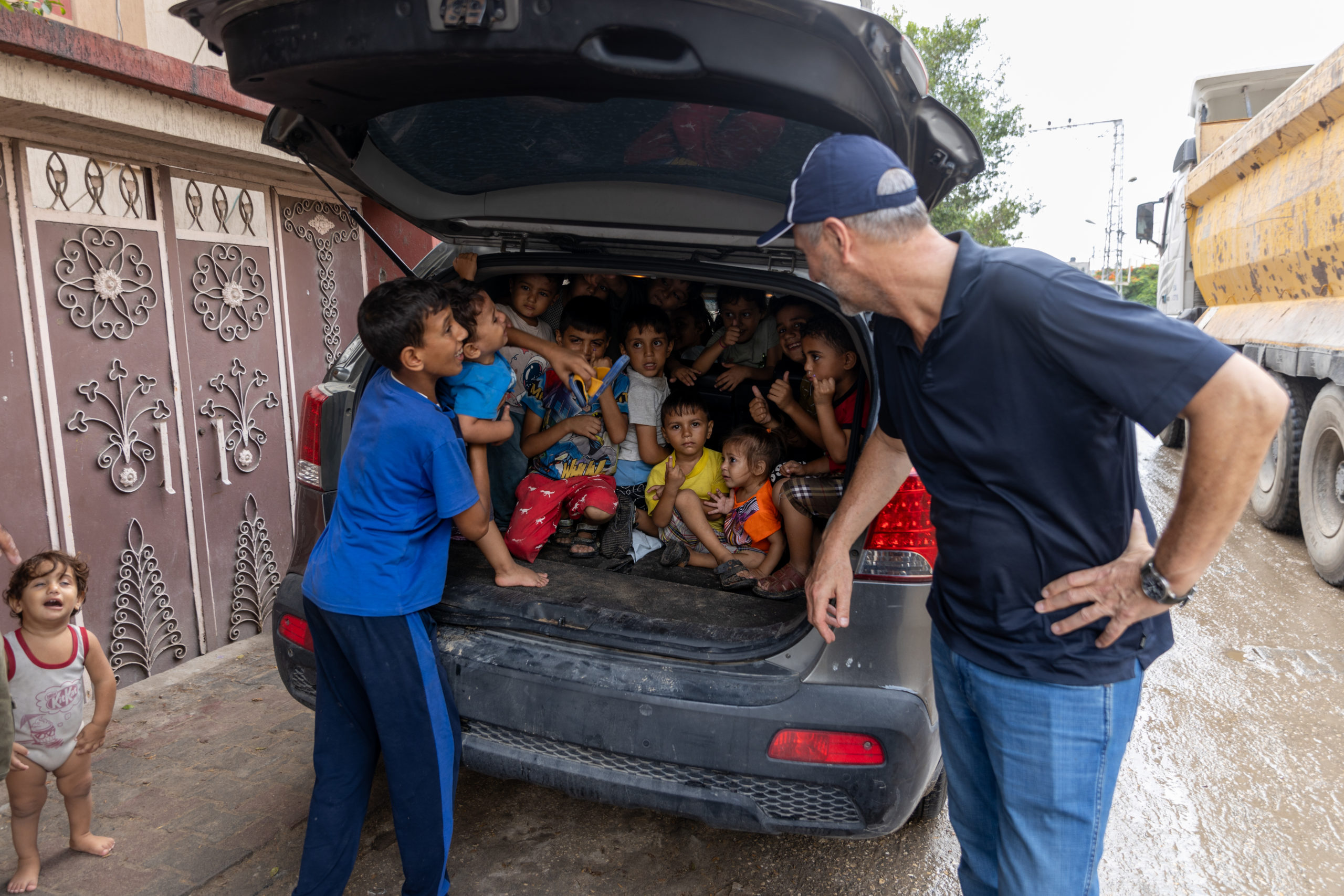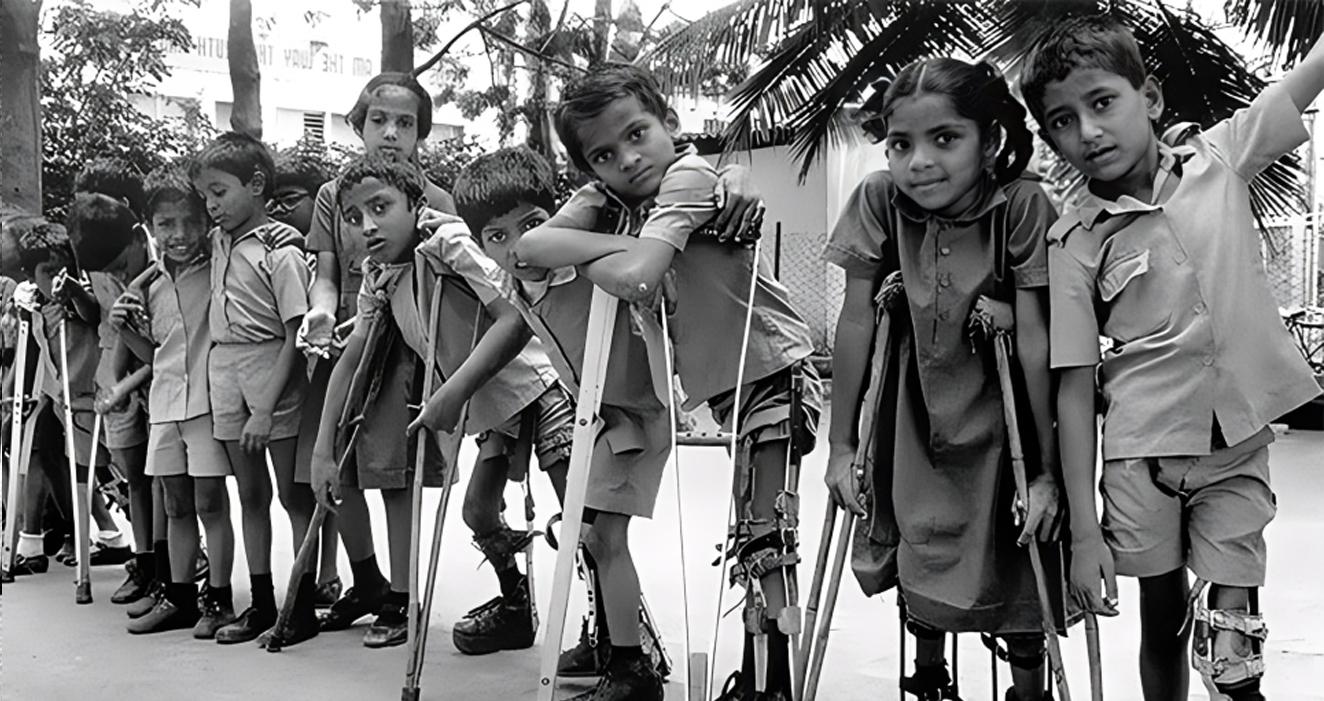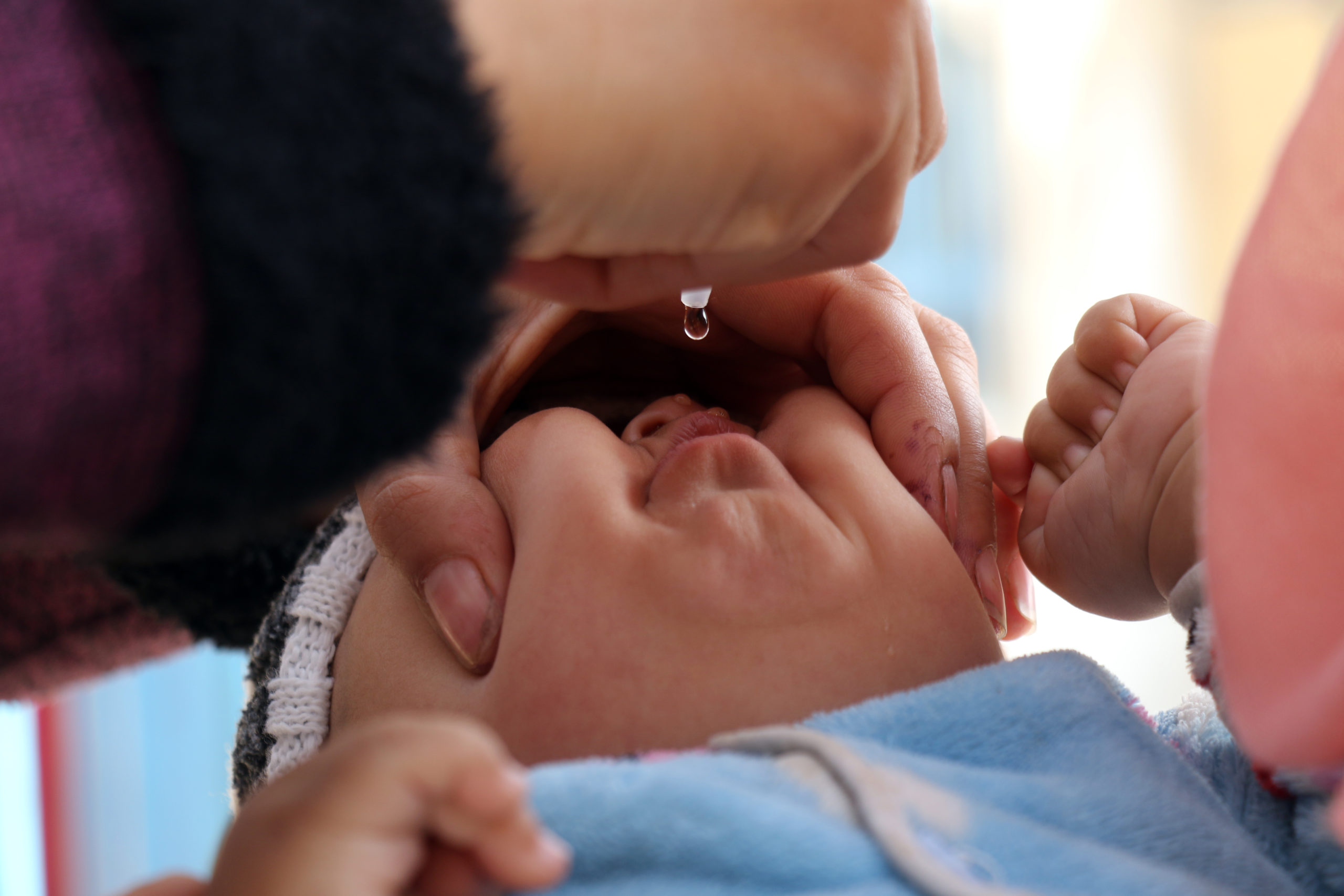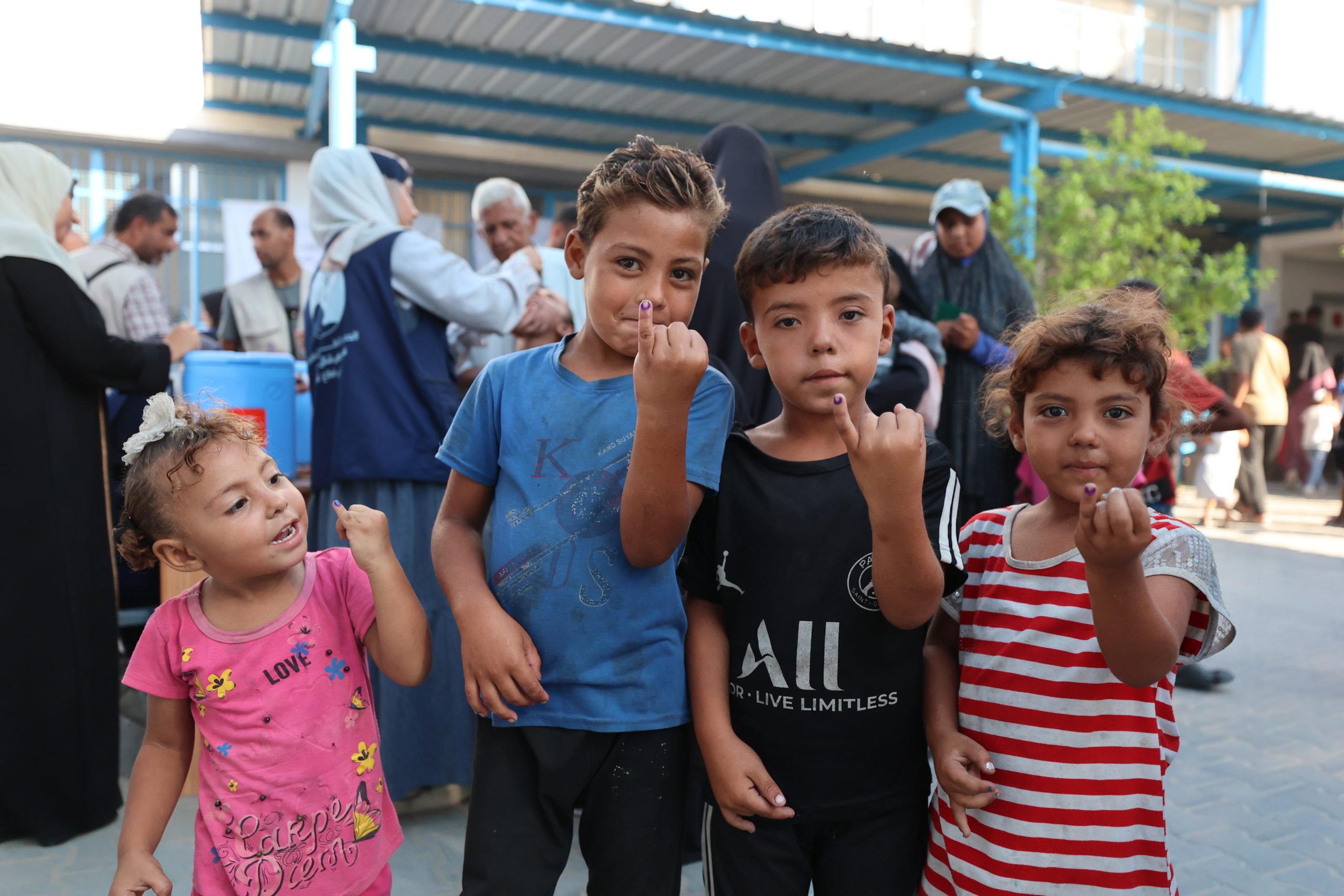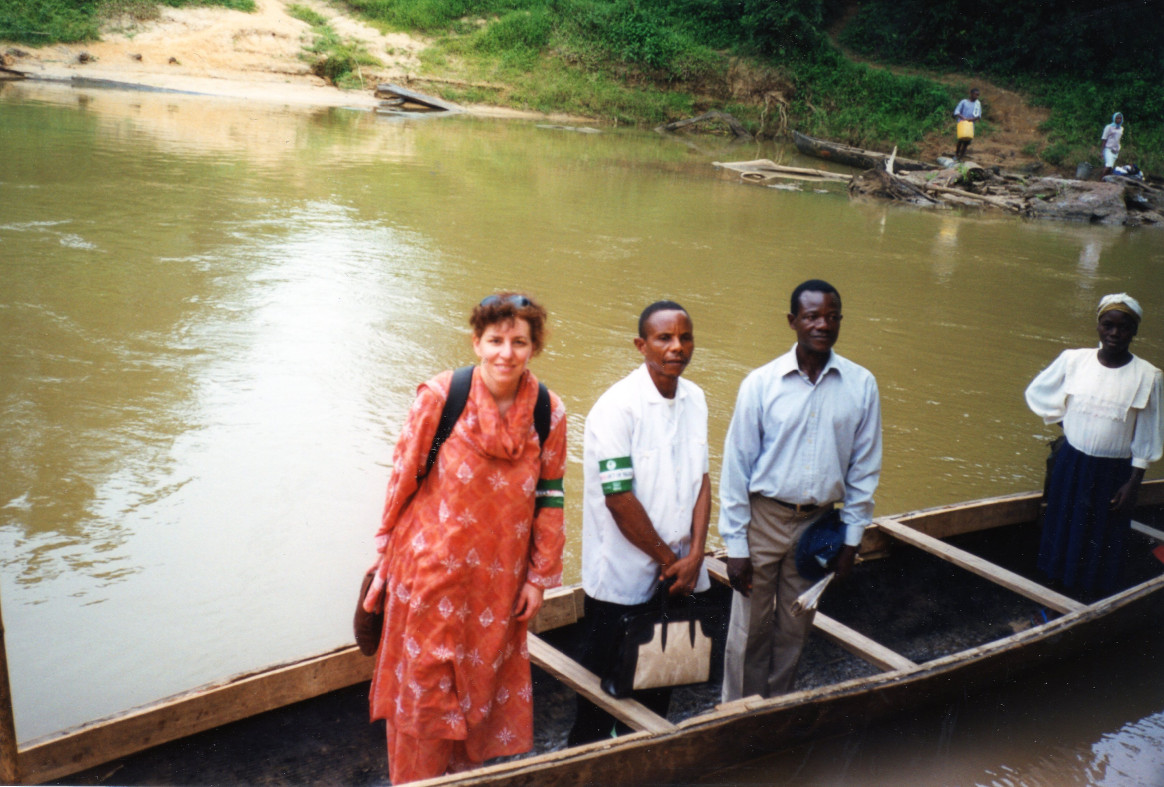
On Ellyn Ogden’s desk sits a decades old coffee mug. It has a special significance for the woman who has led polio eradication for the US Agency for International Development (USAID) since 1997. On the mug, are ten women, the Ladies in Polio, who at the time were the only women participating in GPEI meetings, and only 2 of them were in leadership positions. Ellyn takes her status as a leader in polio eradication seriously and by her actions demonstrates commitment, determination and the need to engage women at all levels of GPEI. As an epidemiologist, public health practitioner and trained ’devil’s advocate’ Ellyn oversees what is cumulatively a $1.3 Billion investment, spanning 30 countries and covering all aspects of polio eradication from surveillance to communication to containment to NGO and civil society engagement. She is the only female member of the European Certification Commission for polio eradication.
Ellyn’s motto “Don’t ask anyone to do something you won’t do yourself” has led her to spend countless hours in the field, monitoring campaigns in over a dozen countries, participating in surveillance review, visiting laboratories, and listening closely to people inside and outside of GPEI to gain perspective and deeper understanding of the communities and operating environment where GPEI needs to succeed. One of Ellyn’s most notable contributions to polio eradication was negotiating ceasefires in eastern Democratic Republic of Congo, which opened access to vaccinate millions of children. She later received USAID’s award for Heroism in 2008. Ellyn’s vast field experience combined with her ability to challenge approaches or assumptions, often through a gender perspective, gives her an important edge when pushing for progress.
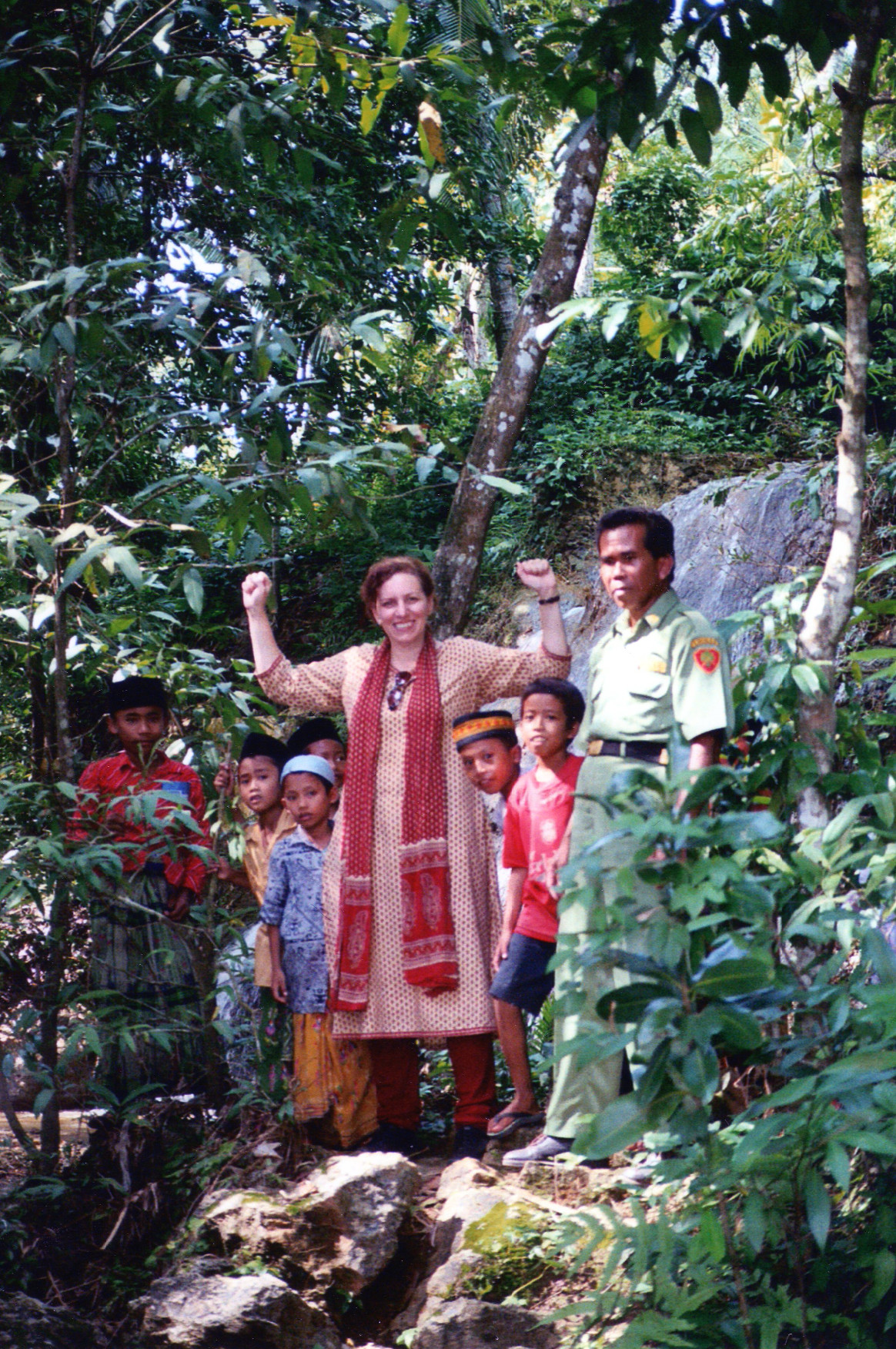
In the formal health sector, women constitute 70% of the health workforce, and the majority of frontline healthcare workers. Despite this, the majority of decision-making, mid-level and senior polio posts are held by men. Ellyn views the gender imbalance as a critical threat to the success of the whole polio eradication effort. While this imbalance concerns Ellyn, she’s encouraged that the GPEI has committed to addressing women’s engagement in the design and delivery of the polio program through not only the GPEI Gender Strategy, but also the forthcoming revised Eradication Strategy.
One advantage of the female colleagues she has witnessed in her time fighting polio is their ability to look at problems holistically, and not through a narrow (albeit important) lens of epidemiology. As we all know, it takes more than vaccines to eradicate a disease, but what does this actually mean in the field? The women that Ellyn has worked with are open to hearing alternative voices, to be more inclusive, to pursue things in parallel and not just in a linear fashion. With the ability to enter homes during house to house campaigns, Ellyn invests time in listening to women. She hears about the challenges and priorities in their daily lives, the role their husbands play in household decision-making, the influences of both male and female elders, and what they are hearing on TV and radio. These dialogues paint a picture for how to approach caregivers, households, and communities more effectively. Importantly, as a leader in GPEI’s larger partnership, Ellyn has a voice (and she would say, a responsibility) in the higher level meetings and can raise issues that are often minimized or ignored by the predominantly male hierarchy.
These insights are now integrated into the GPEI every day, and Ellyn remembers one example vividly from her visits to rural India in the late 1990s. She recalls being “the only woman knocking on doors” in a particular area know for a high rate of vaccine refusals. Several male doctors had tried and failed before her to try and convince the inhabitants to accept polio vaccinations. When Ellyn tried, an elderly grandmother came to the door and explained that as part of an observant Muslim household, it was improper for a man to pound on the door, and for her to open it if her husband was away. In other countries, Ellyn has heard that the wives want to vaccinate their children, but husbands will not give permission to vaccinate unless the local religious leader lends their support. Using the information gleaned from these door-to-door monitoring efforts, Ellyn gave primacy to a strategy that involved local religious and community leaders, civil society, and increased the proportion of female vaccinators in order to access more households in culturally appropriate ways.
The benefits of a female-led polio workforce have also been clear to her at the global policy level. This is apparent when Ellyn talks of eradicating polio “in a manner that strengthens immunization and health systems…we need as many “two-fers” as you can get” such as eradicating polio while also enhancing primary healthcare infrastructure. Achieving these goals in the last remaining countries is impossible without understanding women’s perspective of what’s happening in their country, comprehending the different drivers of behavior, and thinking why someone might be less likely to accept vaccination. GPEI has recognized the imperative of more female vaccinators, but also has to address the many gender-related barriers to realizing this – women may need to go in teams, need safe access to a toilet if they are out for a campaign day, and a safe place to sleep with a trusted escort if staying overnight. If they are to be paid via direct deposit bank account what issues may emerge if their husbands do not encourage this? Analyzing gender and hiring more women vaccinators in itself is not enough; a full appreciation for the impact of gender in polio eradication is still needed as is the need for more women in policy, planning and decision-making at all levels of GPEI.
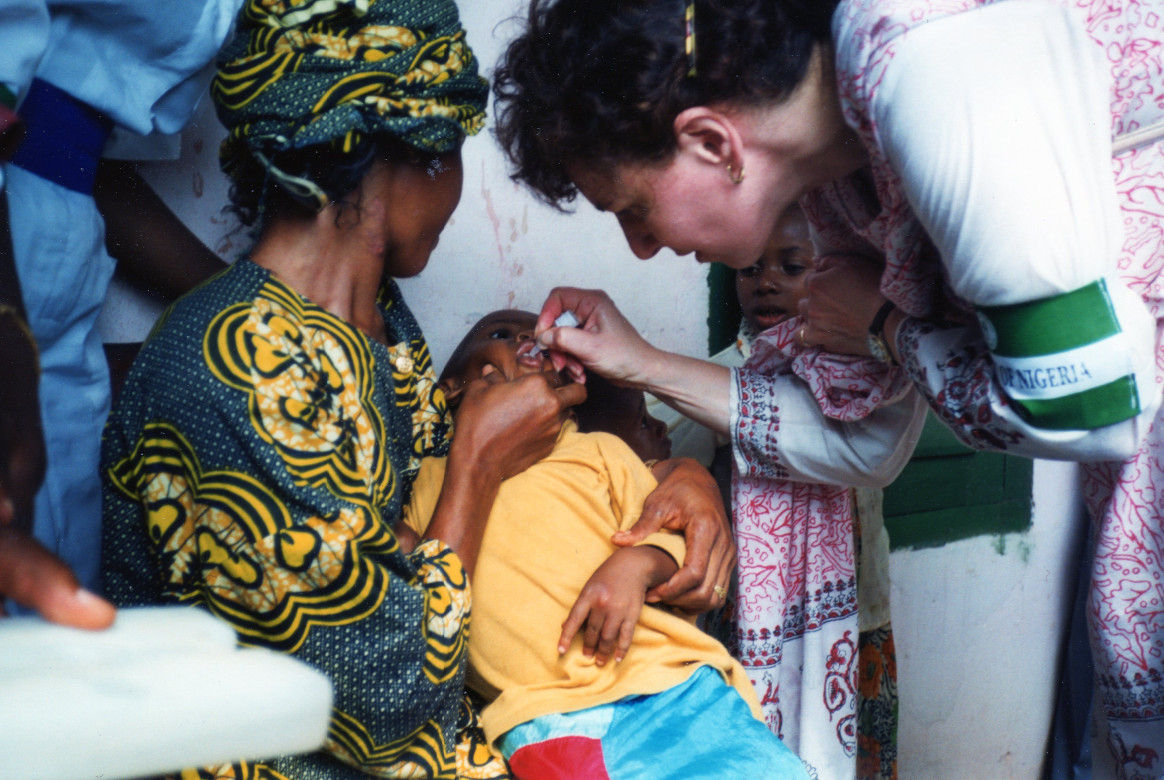
Sometimes the acceptance of new ideas and embracing a more holistic view can take time. Ellyn is widely recognized as a champion of evidence-based polio communication. After years of field observations, Ellyn saw the reliance on generic public service announcements was insufficient, and actively sought more attention for communications, but in a way that adopted epidemiologic approaches to quantitative and qualitative data and incorporated interpersonal communications. According to Ellyn, it “took ten years to have a session on communications at any polio meeting” and even longer to develop a set of common communication indicators such as ‘reasons for missed children’. Her efforts led to the establishment of the Social Mobilization Networks in the large polio countries. Today, her influence is seen in the mainstreaming of social mobilization, public health campaigns, and community advocacy as part of polio eradication, and once the centrality of good communications took root, it has “catalyze[d] the field of health and disease communication”.
Ellyn was also the first to systematically support NGOs and civil society in polio eradication. Building on networks of existing health-based NGOs, Ellyn has fostered two-way engagement between the national level and the community level through trusted and respected NGOs that work in the most marginalized and hard to reach areas, along insecure borders or with mobile and migrant populations. These networks of NGOs are effective mobilizers for polio campaigns and were the first to conduct independent monitoring, now a staple of GPEI. Importantly for the long-term, tens of thousands of community volunteers have also been trained in Community-based surveillance for polio, measles and increasingly zoonotic diseases as part of Global Health Security. Ellyn has envisioned a seamless approach to disease control where governments, UN partners and civil society all contribute to their best capacity towards a common goal. This is critical to polio transition planning and sustaining the investments that GPEI, governments, USAID and others has made over the past 30 years.
Many of the ideas we take for granted today were spearheaded by Ellyn Ogden’s persistent and patient work on polio eradication. “Not a quitter”, she has no plans of stopping any time soon, and looks forward to the day when, with the role of women front and centre, we may call polio a disease of the past.
